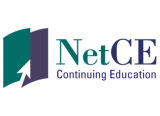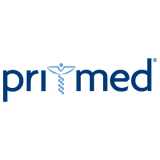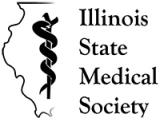Did you mean: medical?
Alzheimer Disease

This continuing education course is intended to increase the knowledge and skills of those who are called upon to care for people with Alzheimer disease.
Category
Format
- Self-study / Enduring
Credits
- 1.00 AANP Pharmacology Contact Hours
- 15.00 MOC
- 15.00 Approved Continuing Education (ACE)
- 15.00 AMA PRA Category 1 Credit™
- 15.00 ANCC
- 15.00 Association of Social Work Boards (ASWB)
CURING Anxiety vs Treating Its Symptoms - Frankly Speaking Ep 320

New evidence points to the efficacy of a simple approach to managing and potentially curing generalized anxiety disorder. Join us to discuss this simple intervention and to review the diagnosis and treatment options for this prevalent disorder.
Category
- Anxiety
Format
- Podcast
Credits
- 0.25 AMA PRA Category 1 Credit™
Understanding Dementia: Characterization, Diagnosis, and Patient Care

As people live longer, the burden of dementia will increase for families, society, and the healthcare system. This session will enable you to help your patients by teaching you how to classify, diagnose, and treat all forms of dementia.
Category
Format
- Self-study / Enduring
Credits
- 1.00 AANP Contact Hours
- 0.25 AANP Pharmacology Contact Hours
- 1.00 AMA PRA Category 1 Credit™
New and Emerging Therapies for Agitation Associated with Dementia Due to Alzheimer’s Disease (AD) An Interactive Learning Experience

Agitation is among the most common behavioral symptoms in patients with dementia, including Alzheimer’s dementia. It exacts a significant burden on patients because it is associated with not only greater morbidity and mortality, but also a faster cognitive and functional decline.
Category
Format
- Self-study / Enduring
Credits
- 0.36 AANP Contact Hours
- 0.36 AANP Pharmacology Contact Hours
- 0.50 AMA PRA Category 1 Credit™
Sexual Misconduct: How to Protect Yourself and Your Patients

In this lecture, we will describe the continuum of sexual exploitation, including sexual or gender-based discrimination, harassment and abuse.
Category
Format
- Self-study / Enduring
Credits
- 1.00 AMA PRA Category 1 Credit™
- 1.00 Contact hours
Urgent Encounters: Acute Infections in Primary Care

Primary care clinicians are often the first point of contact for patients presenting with acute infection. This case-based session will cover a practical approach to common infections in the urgent care setting.
Category
Format
- Self-study / Enduring
Credits
- 1.00 AANP Contact Hours
- 0.60 AANP Pharmacology Contact Hours
- 1.00 AMA PRA Category 1 Credit™
Diabesity: Confronting the Dual Epidemic of Diabetes and Obesity

This session will delve into the intersection of obesity and type 2 diabetes. Learners will explore strategies for glycemic and weight management, cardiorenal protection, and cardiovascular risk mitigation, with an emphasis on the latest guidelines for managing type 2 diabetes and providing holi
Category
- Diabetes Mellitus (DM)
- Weight Management
Format
- Self-study / Enduring
Credits
- 1.00 AANP Contact Hours
- 0.25 AANP Pharmacology Contact Hours
- 1.00 AMA PRA Category 1 Credit™
Bridging the Gap: Emotional and Cultural Intelligence in Clinical Practice

The most productive companies in the world stress the importance of both emotional and cultural intelligence in their leaders. We will look at applying these principles to patient care as a way to improve adherence, quality outcomes, and clinician success. The key is self-awareness.
Category
- Cultural Competency
Format
- Self-study / Enduring
Credits
- 1.00 AANP Contact Hours
- 1.00 AMA PRA Category 1 Credit™
Screening, Brief Intervention, and Referral to Treatment (SBIRT)
Screening, Brief Intervention, and Referral to Treatment (SBIRT) is a comprehensive public health approach for delivering early intervention and treatment services to people with, or at risk of developing substance use disorders.
Category
Format
- Self-study / Enduring
Credits
- 3.50 AMA PRA Category 1 Credit™
Pain Management Pearls: Opioids and Culture

Pain affects all domains of life, and clinicians have few effective tools at their disposal to help these patients. Opioids remain the strongest group of analgesic drugs available.
Category
Format
- Self-study / Enduring
Credits
- 2.00 AMA PRA Category 1 Credit™
- 2.00 ANCC

 Facebook
Facebook Twitter
Twitter LinkedIn
LinkedIn Forward
Forward